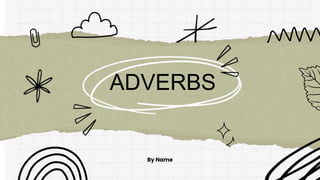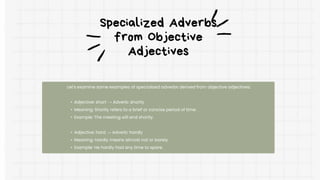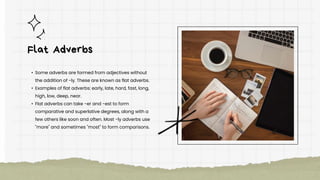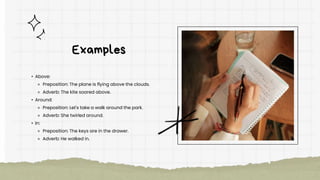This document discusses adverbs and their various forms and uses. It covers:
1. Adverbs can modify verbs, adjectives, and other adverbs. They are often movable and add emphasis or nuance.
2. The '-ly' suffix is commonly used to derive adverb forms from adjectives describing manner. Not all adjectives can form adverbs this way.
3. Other suffixes like '-ward' and '-wise' also derive specialized adverbs. Some adjectives form adverbs with metaphorical meanings.
4. Comparisons for '-ly' adverbs use 'more' rather than '-er.' Adverbs without suffixes are identified by context and position.



























